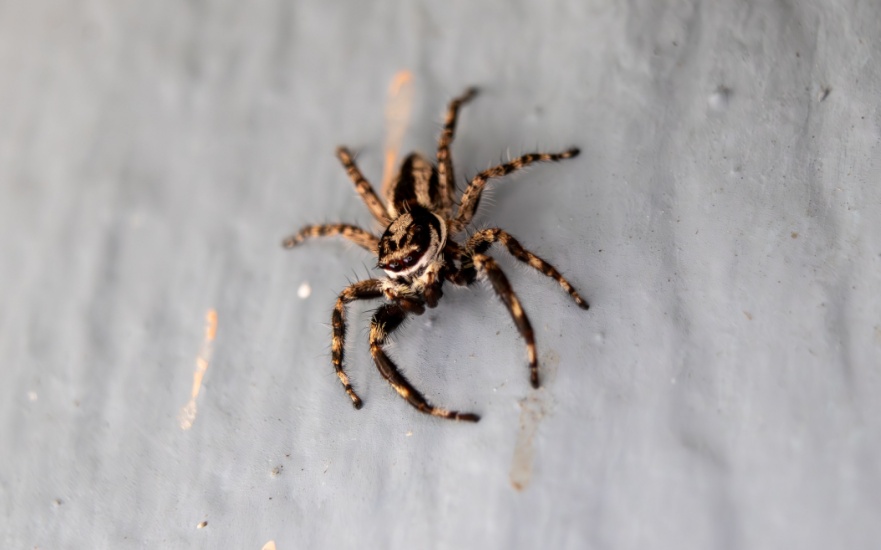Warning Notice: Some spiders commonly found in Dallas, like the brown recluse and black widow, are venomous and can pose serious health risks. If you suspect a bite from a dangerous spider, seek medical attention immediately.
If you’re a homeowner in the Dallas area, you’ve likely encountered a spider or two—maybe in the garage, under furniture, or in the attic. While many species are harmless and even helpful, some can be a serious concern. Below, we break down the most common spider species in Dallas, how to identify them, and what you can do to keep your home spider-free.
For fast, effective spider control in Dallas, Vinx Pest Control offers customized solutions backed by local expertise.
Example of Common Spider Species in Dallas
Common House Spider (Parasteatoda tepidariorum)
These small, brownish spiders are the ones you’re most likely to see in your home. They weave messy webs in corners, basements, and attics. While they may look unsettling, common house spiders are harmless and actually help control other pest populations by feeding on insects.
Wolf Spider (Lycosidae Family)
Wolf spiders are often mistaken for brown recluses due to their size and color. They are fast, ground-dwelling hunters that do not spin webs. Despite their intimidating appearance, wolf spiders are not venomous to humans and tend to avoid contact.
Brown Recluse Spider (Loxosceles reclusa)
The brown recluse is one of the most dangerous spiders found in Dallas. Identified by a violin-shaped marking on its back, this spider prefers dark, undisturbed spaces like closets, storage bins, or beneath furniture. Bites from brown recluses can lead to skin necrosis and require immediate medical care. Learn more about identifying brown recluses from the CDC’s official guide.
Black Widow Spider (Latrodectus mactans)
Black widows are easily recognized by the red hourglass marking on their abdomen. These spiders hide in secluded areas such as crawl spaces, garages, sheds, and woodpiles. A bite from a black widow can cause severe muscle cramps, pain, and, in rare cases, more serious complications. Refer to Texas A&M AgriLife Extension for additional spider safety tips.
Jumping Spider (Salticidae Family)
Jumping spiders are small, curious creatures with excellent vision and the ability to leap several times their body length. They’re typically found on walls, windowsills, and ceilings during the day. These spiders are not harmful to humans and rarely bite.

Tips for Managing Spiders in Your Dallas Home
Even if a spider isn’t dangerous, that doesn’t mean you want it as a roommate. Here are several ways to prevent and manage spider issues in your home:
- Reduce Clutter: Spiders love undisturbed areas. Keep storage rooms, basements, and garages organized.
- Seal Cracks and Gaps: Check windows, doors, and your foundation for small openings and seal them to prevent entry.
- Clean Regularly: Vacuum regularly in corners, under furniture, and around baseboards to remove webs and eggs.
- Maintain Your Yard: Trim vegetation back from your home and keep woodpiles or debris away from the structure.
- Use Natural or Chemical Repellents: Essential oils like peppermint and eucalyptus can be effective. For serious infestations, consider pesticide treatments.
When to Call for Professional Spider Control in Dallas
If you’re noticing more spider activity than usual or suspect you have venomous spiders like brown recluses or black widows, it’s time to call in the pros. At Vinx Pest Control, we offer:
- Thorough home inspections
- Identification of spider species
- Targeted treatments that eliminate current spiders and prevent future ones
- Service across Dallas neighborhoods including Lakewood, Richardson, Oak Cliff, and Highland Park
Our local technicians are trained to handle spider infestations safely and effectively.
Related Resource
Final Thoughts
Understanding the common spider species in Dallas helps you make informed decisions about your home’s safety. While most spiders are more of a nuisance than a threat, species like the brown recluse and black widow require caution and professional intervention. Stay proactive with home maintenance, keep your space clean and sealed, and don’t hesitate to contact Vinx Pest Control for expert help tailored to Dallas homeowners.



